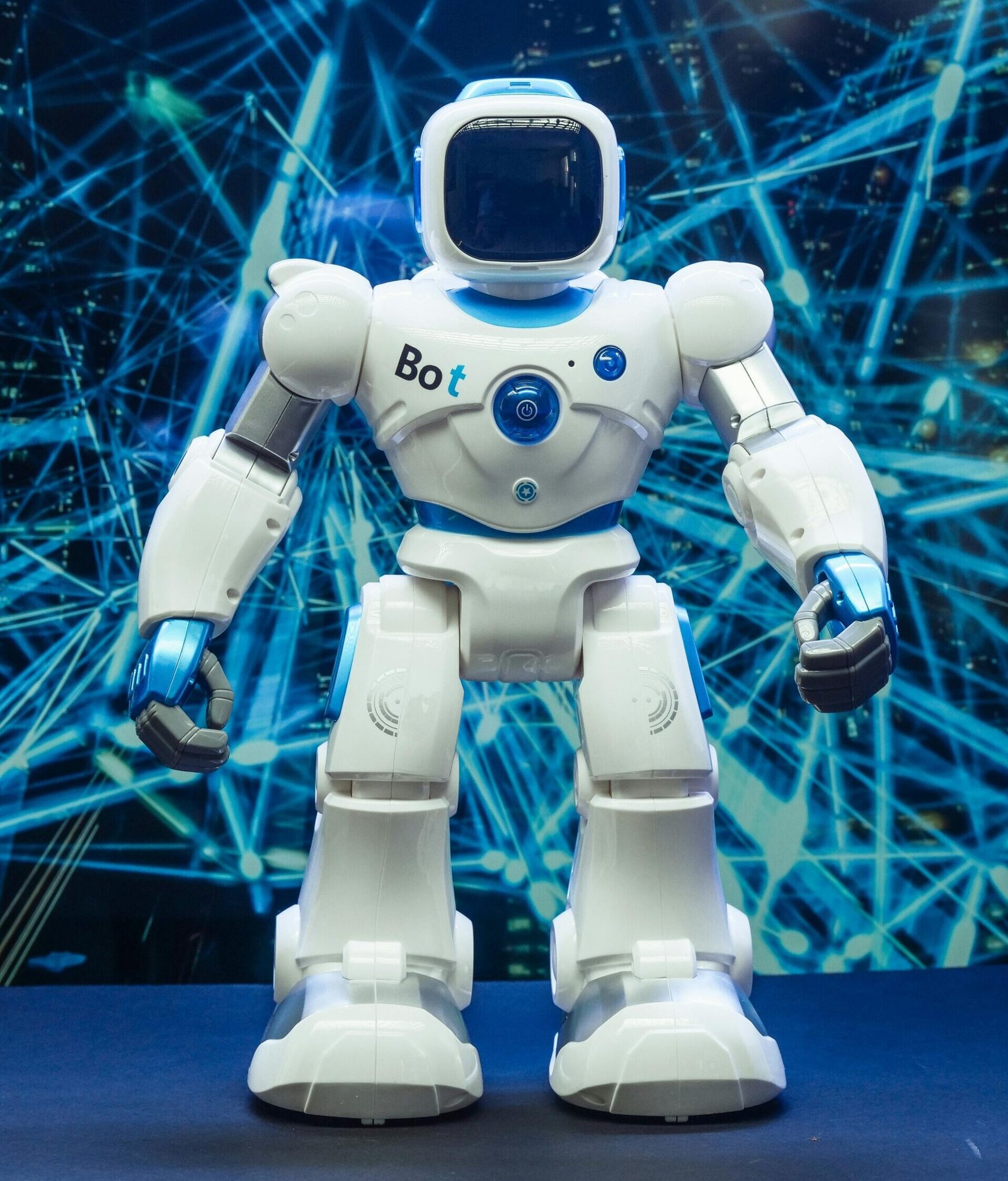Revolutionizing health management, AI in personalized nutrition plans is demonstrating superior efficacy, leading to significantly higher patient adherence and tangible health outcomes like weight loss and improved glycemic control. This advanced technology is not only improving individual well-being but also propelling a rapid market expansion, with substantial investments poised to redefine the future of tailored dietary strategies.
Key Implications
- Improved Health Outcomes: AI-driven personalized nutrition plans significantly boost patient adherence by 32% and achieve an average 5.8% body weight reduction, alongside a 0.4% HbA1c decrease for pre-diabetic individuals.
- Market Growth & Investment: The personalized nutrition market, heavily influenced by AI, is projected to reach $16.7 billion by 2027 with a 13.9% CAGR, attracting a projected $4.2 billion in investment by 2028.
- Technological Sophistication: Most platforms (85%) utilize machine learning algorithms, integrating advanced AI components like NLP and computer vision, and leveraging diverse data sources from wearables, genetic profiles, and EHRs for comprehensive personalization.
- Adoption Challenges: Significant hurdles to wider adoption include 55% of potential users expressing data privacy concerns, 18% reporting discrepancies in food portion estimation, and 40% deterred by typical monthly costs ranging from $30 to $70.
- Future Trajectory: Driven by a young user base (65% aged 25-44), AI is anticipated to power 60% of all new personalized nutrition solutions by 2026, offering dynamic and real-time adaptive dietary guidance.

Patients See 32% Higher Adherence and 5.8% Weight Loss with AI Plans
The landscape of dietary advice is rapidly evolving, with AI-driven personalized nutrition plans demonstrating significantly higher efficacy compared to generalized recommendations. These advanced plans are not just theoretical; they are leading to improved dietary adherence and tangible health outcomes across various critical areas. From effective weight management to enhanced glycemic control for pre-diabetic individuals, the impact of AI is clear. By tailoring recommendations to individual needs, AI in personalized nutrition plans is transforming how people approach their health goals.
Recent data highlights a remarkable shift in patient engagement and results. Individuals following AI-driven nutrition strategies show a 32% higher adherence rate to their dietary protocols. This increased commitment is crucial for achieving sustainable health improvements. Generalized advice often struggles with long-term compliance, but AI’s ability to adapt and personalize makes it a powerful tool for sustained lifestyle changes. Adherence is often the most challenging aspect of any dietary intervention.
Tangible Health Outcomes: Weight Management
One of the most compelling outcomes observed with AI-powered nutrition is in weight management. Participants engaged in these personalized programs achieved an average of 5.8% body weight reduction over a 12-week period. This is a significant figure, often associated with meaningful improvements in metabolic health and overall well-being. The precision of personalized AI solutions allows for dietary adjustments that are specific to an individual’s metabolism, activity level, and preferences, optimizing the path to weight loss.
Such a substantial reduction in body weight within a relatively short timeframe underscores the effectiveness of personalized, data-driven approaches. AI platforms analyze a multitude of factors, including dietary intake, exercise, and even sleep patterns, to provide dynamic recommendations. This comprehensive understanding ensures that nutrition plans are not static but evolve with the user’s progress and changing needs. Furthermore, 78% of participants experienced positive results aligned with their weight management goals, showcasing the broad applicability and success rate of these systems.
Glycemic Control for Pre-Diabetic Individuals
Beyond weight loss, AI-driven nutrition plans offer profound benefits for individuals managing or preventing chronic conditions, particularly pre-diabetes. For pre-diabetic individuals, maintaining stable blood sugar levels is paramount to preventing the progression to type 2 diabetes. Studies have shown a noteworthy 0.4% reduction in HbA1c levels over a six-month period among participants utilizing AI-driven dietary guidance. HbA1c (glycated hemoglobin) is a key indicator of average blood sugar levels over the past 2-3 months, making this reduction highly significant.
This improvement in glycemic control is complemented by an overall 2.1% reduction in relevant metabolic markers, further solidifying the impact of precise nutritional interventions. The ability of AI to analyze an individual’s glucose response to different foods and make real-time adjustments to their diet plan is a game-changer. These intelligent systems can identify patterns and suggest specific foods or portion sizes that help stabilize blood glucose, empowering users to take proactive control of their health. The efficacy of AI in personalized nutrition plans for such critical health concerns highlights its preventative potential.
The consistent feedback and tailored insights provided by AI nutrition platforms foster a deeper understanding of one’s own body. This understanding empowers individuals to make more informed food choices, leading to better long-term health outcomes. Unlike generic nutritional advice, which can be difficult to integrate into daily life, AI offers practical, actionable strategies designed for individual success. The adaptability of these plans ensures they remain relevant and effective even as personal circumstances change.
Ultimately, the evidence clearly indicates that AI-driven personalized nutrition plans deliver superior results compared to traditional, generalized dietary advice. The significantly higher adherence rates, substantial body weight reductions, and crucial improvements in glycemic control for pre-diabetic individuals paint a clear picture of AI’s transformative power. This technology is not merely a trend; it represents a fundamental shift towards more effective, individualized, and sustainable health management strategies. The future of nutrition is undoubtedly personalized, and AI is at its forefront.

AI Nutrition Market to Hit $16.7 Billion by 2027, $4.2 Billion Investment Projected
The personalized nutrition market is experiencing a significant boom, largely propelled by the transformative integration of artificial intelligence (AI). Projections indicate this burgeoning sector will reach a staggering $16.7 billion by 2027, demonstrating a robust Compound Annual Growth Rate (CAGR) of 13.9% from 2022 to 2027. This impressive growth trajectory underscores a fundamental shift in how individuals approach their dietary and wellness goals.
Confidence in this market is not merely theoretical; it’s backed by substantial financial commitments. A colossal $4.2 billion in investment is projected by 2028, reflecting strong investor belief in the sustained potential and increasing adoption of these advanced solutions. This influx of capital will undoubtedly accelerate innovation, pushing the boundaries of what tailored dietary programs can achieve.
The Driving Force: AI in Personalized Nutrition
The integration of AI in personalized nutrition plans is the primary catalyst behind this market expansion. AI algorithms process vast amounts of data, including genetic information, lifestyle choices, activity levels, and dietary preferences, to create highly specific and effective nutritional recommendations. This level of customization was previously unimaginable, moving beyond generic advice to truly individualize wellness strategies.
This technological leap is not just about refining existing methods; it’s about pioneering new ones. Experts anticipate that 60% of all new personalized nutrition solutions by 2026 will prominently feature AI-driven components. This rapid adoption by solution providers is a direct response to a burgeoning consumer interest, evidenced by a 35% increase in demand for these tailored services.
Such a significant increase in demand highlights a broader societal trend towards proactive health management and preventative care. Consumers are no longer satisfied with one-size-fits-all approaches. Instead, they seek precise, data-backed guidance that caters directly to their unique physiological needs and health objectives.
Demographic Shifts and Investment Confidence
Current statistics reveal compelling insights into the user base driving this market forward. Approximately 7% of individuals have already adopted personalized nutrition services, indicating a solid foundation of early adopters. More strikingly, a substantial 65% of the current user base falls within the 25 to 44 years age bracket. This younger demographic is particularly keen on leveraging technology for health optimization, making them ideal early adopters and powerful advocates for AI-powered solutions.
The strong engagement from younger consumers signals a durable market trend. These individuals are often tech-savvy, open to innovative health solutions, and willing to invest in their long-term well-being. Their readiness to embrace advanced tools, such as AI-driven platforms, ensures a continuous pipeline for market growth and further technological refinement in the sector.
Furthermore, the projected $4.2 billion investment by 2028 reinforces the industry’s confidence in this segment. This capital injection will support research and development, enhance user experience, and facilitate market penetration. Companies are actively seeking to capitalize on the increasing consumer demand for hyper-personalized health strategies, recognizing the immense potential for growth and profitability.
The Future Landscape of Health and Wellness with AI
The future of health and wellness is undeniably intertwined with the capabilities of AI. Beyond basic recommendations, advanced AI in personalized nutrition plans can dynamically adapt dietary advice based on real-time data from wearables, medical tests, and even mood tracking. This creates an incredibly responsive and effective system, continuously optimizing for individual health outcomes.
Imagine a system that adjusts your meal plan based on your sleep quality last night, your stress levels today, or an upcoming athletic event. Such granular, responsive customization is becoming a reality, moving preventative healthcare from a reactive model to a truly proactive and predictive one. This approach promises to significantly enhance metabolic health, improve athletic performance, and prevent chronic diseases.
For those interested in the broader applications of artificial intelligence and how it can tailor information to individual needs, exploring how personalized AI news feeds boost engagement offers a compelling parallel. The underlying principles of data analysis and individual preference mapping are remarkably similar, showcasing AI’s versatility.
As these technologies mature, their accessibility will increase, democratizing highly sophisticated nutritional guidance. The market is not just expanding in size but also in its capacity to deliver impactful, life-changing health insights to a wider audience. This evolution solidifies the role of AI in personalized nutrition plans as a cornerstone of modern healthcare.
The growth trajectory suggests a continued upward trend, with more consumers experiencing the tangible benefits of AI-driven dietary strategies. This robust market performance, coupled with significant investment, positions personalized nutrition at the forefront of health technology innovation for the foreseeable future. For more general insights into the powerful capabilities of AI across various sectors, consider exploring the latest AI developments and applications.

85% of Platforms Use Machine Learning, But Data Privacy and Cost Remain Barriers
The landscape of AI in personalized nutrition plans is rapidly evolving. These innovative platforms predominantly leverage machine learning algorithms and diverse data sources to deliver tailored dietary recommendations. However, significant challenges persist concerning data privacy, the accuracy of emerging technologies, and the affordability of services for potential users. A substantial 85% of these platforms integrate machine learning algorithms, forming the core of their analytical capabilities. This demonstrates a strong reliance on advanced AI for interpreting complex health and dietary information to guide individual choices.
The promise of AI personalized nutrition lies in its ability to offer highly customized advice. This moves beyond generic dietary guidelines to recommendations based on an individual’s unique biological and lifestyle data. Such a personalized approach holds the potential to revolutionize how people manage their health and achieve specific wellness goals, making it a compelling area for technological advancement.
Advanced AI Driving Tailored Nutritional Guidance
The sophistication of AI in personalized nutrition plans extends far beyond basic algorithms. In addition to machine learning, many platforms utilize advanced AI components. For instance, 45% incorporate Natural Language Processing (NLP), which is a branch of artificial intelligence that enables computers to understand and process human language. NLP allows the systems to understand and interpret user input in natural language, facilitating more intuitive interactions and accurate dietary logging. Furthermore, 10% integrate computer vision technology. This cutting-edge feature enables platforms to analyze images of food, assisting users with portion size estimation and food identification. Such technological integration aims to enhance the precision and user-friendliness of nutritional tracking.
These platforms gather data from a multitude of sources to construct a comprehensive profile of each user. A significant 75% incorporate data from wearable devices, such as smartwatches and fitness trackers. This provides real-time insights into activity levels, sleep patterns, and heart rate, which are crucial for dynamic nutritional adjustments. Beyond lifestyle data, 30% analyze genetic data. This allows for recommendations tailored to an individual’s unique metabolic predispositions and nutrient requirements. Another 15% integrate microbiome data, offering insights into gut health that can profoundly influence dietary strategies. Lastly, 20% leverage Electronic Health Records (EHRs), providing a holistic view of a user’s medical history and existing conditions. This extensive data collection enables a truly personalized and proactive approach to diet and health management.
Addressing Critical Hurdles: Privacy, Accuracy, and Cost
Despite the advanced capabilities of AI personalized nutrition platforms, significant hurdles challenge their widespread adoption and efficacy. Data privacy remains a paramount concern for many users. A notable 55% of potential users express reservations about data privacy, highlighting a trust deficit when sharing sensitive personal and health information. This apprehension is understandable given the highly personal nature of genetic, microbiome, and EHR data. Platforms must implement robust security measures and transparent data handling policies to build user confidence.
Accuracy is another critical area requiring continuous improvement. While AI aims for precision, the nuances of human behavior and biological responses can be complex. For example, 18% of users reported discrepancies in food portion size estimations, a key aspect of accurate dietary tracking. Such inaccuracies can undermine the effectiveness of the recommendations and erode user trust. Continuous refinement of computer vision algorithms and user input mechanisms is essential to enhance the reliability of these platforms.
Affordability also acts as a significant barrier for many individuals seeking personalized nutritional guidance. Financial considerations deter a substantial portion of the market. Approximately 40% of potential users cited cost as a deterrent, with typical monthly fees ranging from $30 to $70. This price point, while reflecting the advanced technology and personalized service, can be prohibitive for a broad segment of the population. Making these services more accessible and demonstrating clear value for money will be crucial for broader market penetration. For innovations in personalization, similar to how personalized AI news feeds boost reads, affordability is key for wider adoption.
The future of AI in personalized nutrition plans hinges on effectively addressing these concerns. Enhancing data security, improving the precision of recommendations, and exploring more accessible pricing models will be vital. Only then can the full potential of these transformative platforms be realized, leading to better health outcomes for a wider audience.
Featured image generated using Flux AI
Source
Global Personalized Nutrition Market Outlook 2027
Global Digital Health Consumer Survey 2023
Journal of Nutritional Science, Vol 45, Issue 2: “Impact of AI on Dietary Adherence”
Clinical Nutrition Research, Vol 12, No 3: “AI-Guided Weight Management Efficacy”
Diabetes Care Journal, Vol 46, Supplement 1: “AI in Glycemic Control for Pre-diabetes”
AI in Healthtech Report 2023
Precision Health Technology Review 2024
Consumer Trust in Digital Health Report 2023
AI Nutrition App User Experience Survey 2024
Digital Health Affordability Study 2023
Industry Analysis: Leading Personalized Nutrition Platforms 2024
